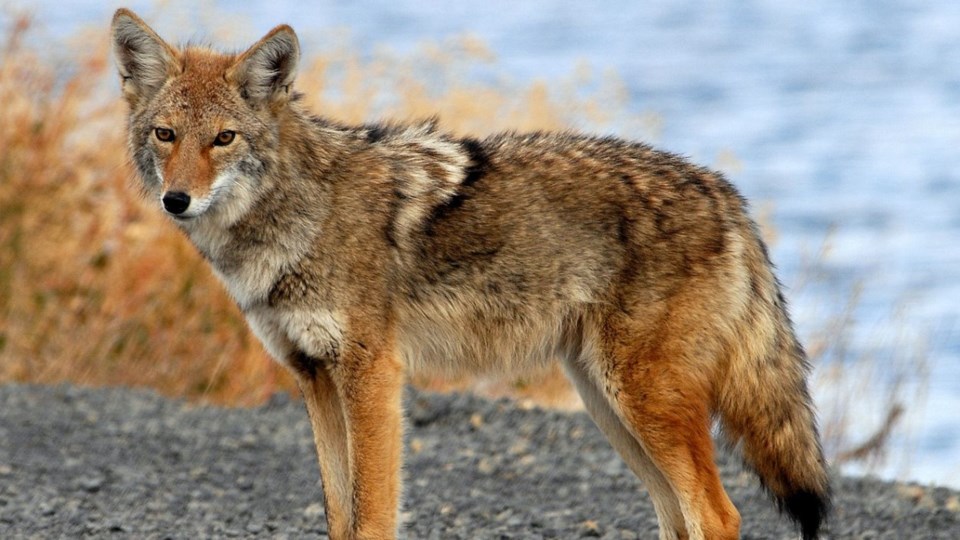Living with coyotes is about "co-flourishing," not "co-existing," a leading coyote expert said in Guelph on Thursday.
"Co-flourishing is a win/win situation for everyone," said Lesley Sampson, a wildlife conflict specialist with the not-for-profit Coyote Watch Canada.
Coyote sightings are fairly common on the outskirts of Guelph, most notably in the Niska Trail area and other outlying sites where people walk, often with their dogs. It's important to understand the animals and learn to accept them, said Sampson.
She said that coyotes are actually a perfect eco-thermometer and that their existence in an environment is - ecologically speaking - a good thing.
Sampson's presentation was one of four held at Gueph City Hall on Thursday as part of the City and the Beasts event, put on by the city and the Guelph Humane Society. Being a good dog owner and neighbour, enriching your indoor cat's environment and attracting wild birds were the other.She said the media, history and public misconception has created a false image of coyotes being aggressive, predatory and dangerous creatures.
"It's an image of a being that just doesn't exist," said Sampson.
As part of her advocacy work she has "hazed" coyotes away from areas many times and has faced up to seven coyotes at one time. Not once has a coyote ever turned on her.
She dispelled some coyote myths, including the notion of "coydogs" or "coywolves," that coyotes bait dogs, that they abandon their pups and that they stalk people.
But there are things that people need to do to help avoid conflict with coyotes, which are "opportunistic omnivores" and very protective of their cubs.
"Coyotes fill an ecological niche that no other animal does," Sampson said.
Generally speaking, aggressive behavior from a coyote is a defensive behaviour, Sampson said.
Keeping dogs on a leash is one. Not letting dogs play with coyotes is another. Picking up your dog's feces, avoiding attracting other food sources through bird feeders are others.
Never, she said, feed coyotes and never let your dog off a leash in an area they live.
"Domestic dogs are almost always threatening to coyotes," she said.
Relocating or killing coyotes is not an effective management tool, she said. It creates a cascade effect that doesn't address the issue in the long run.
Coyotes build dens underground or under the roots of large trees. Females have two to 10 pups on average once a year and half the litter won't survive the first year. They mate for life, co-parent and are most active at dusk and dawn.
The Eastern Coyote that inhabits this area tends to be the size of a medium dog.
Should you encounter a coyote, remember:
- stop, make yourself big and pick up children and small pets that are with you.
- never run
- make yourself big, including waiving your arms or popping an umbrella
- be loud and assertive
- slowly back away, don't run and don't turn your back
More information on coyotes can be found on at www.coyotewatchcanada.com or through the Guelph Humane society at here.
